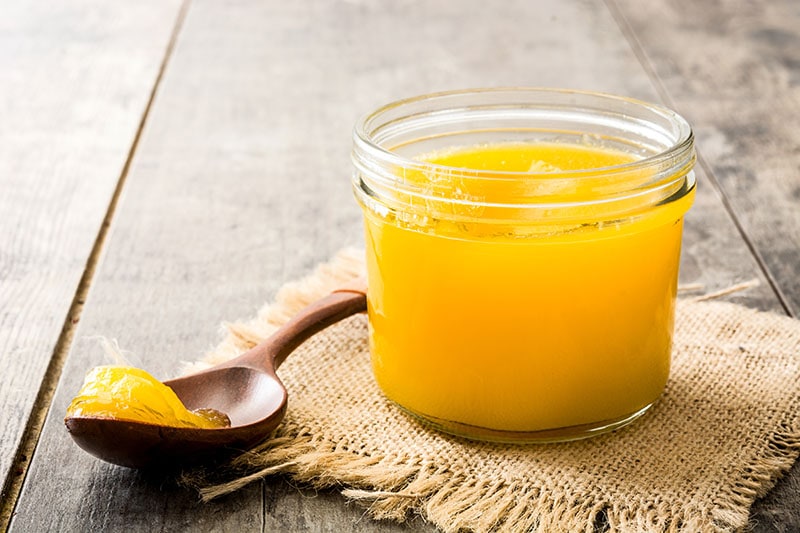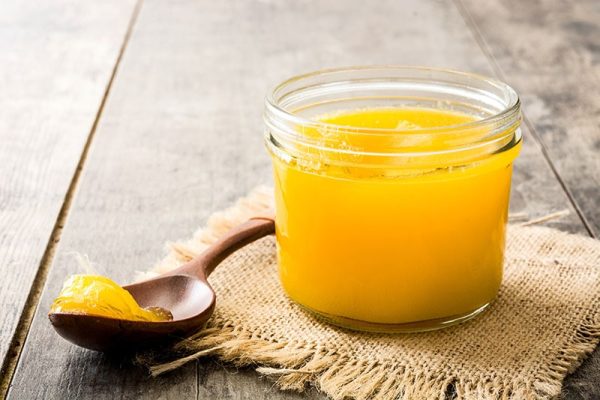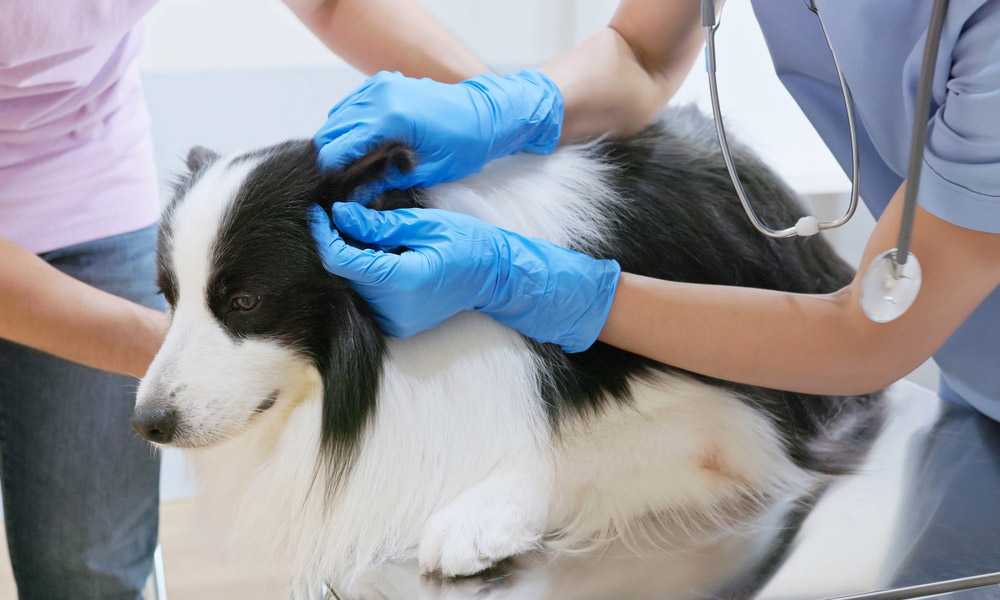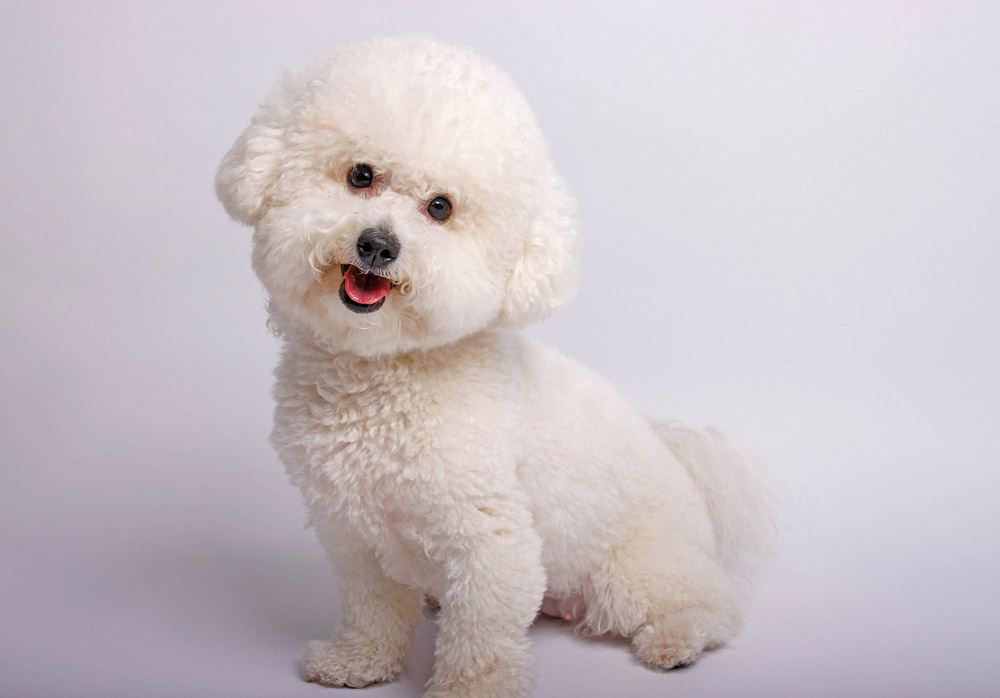Click to Skip Ahead
Ghee is a form of clarified butter from South Asia that has been prominent in Hindu culture for thousands of years. It’s commonly used as a cooking oil in Indian and Middle Eastern cuisine and is known for having numerous health benefits for people. So, does this mean dogs can eat it, too? It does: Dogs can eat ghee in moderation, though there is no specific reason they need to do so.
In this post, we’ll give you the lowdown on the possible health benefits of ghee for dogs and important things to take into account when offering it to your dog.
Is Ghee Good for Dogs?
Make no mistake, ghee is by no means the healthiest food for dogs due to its high-fat content (more on this below). However, when fed in small amounts, ghee shouldn’t be harmful and might offer your dog some health benefits, though there hasn’t been much research on how exactly ghee benefits dogs. Here are the possibilities:
Ghee is a source of vitamin K, which helps with calcium absorption, blood clotting and supports bone, tooth, and joint health. Ghee also contains another important vitamin: vitamin A. Vitamin A contributes to eye health and immune system health.
Another potential benefit is the fact that ghee is a source of butyric acid and omega-3 fatty acids. These have anti-inflammatory properties that are good for reducing joint, and skin inflammation, as well as aiding in healthy digestion.

How Much Ghee Can Dogs Eat?
Though ghee contains a number of important nutrients for dogs, too much is never a good idea. In fact, dogs don’t need Ghee at all. Ghee is very high in fat, so overindulgence could cause negative effects, including obesity, pancreatitis, and digestive upset. This makes ghee an unsuitable choice for overweight dogs and dogs with or prone to pancreatitis.
It’s best to limit dogs to a maximum of one teaspoon of ghee, adjusted to suit your dog’s size, infrequently. Smaller dogs should have less than big dogs—around one-quarter of a teaspoon. Before feeding Ghee, check with your veterinarian to ensure it is suitable for your dog and their health needs. Remember that dogs don’t need to eat ghee. They should get all the nutrients they need from a complete and balanced commercial formula.
What Is an Ideal Diet for Dogs?
Complete and balanced commercial diets are formulated to offer your dog—an omnivore—all the nutrients they need. However, the kind of food you choose will depend on various factors, so it’s best to ask your vet for a recommendation for the most suitable kind of diet for your dog, especially if they have a health condition.
Once you’ve picked a recipe that suits your dog’s needs and age range, be sure to check the label on the packaging to find out how much your dog should eat on a daily basis depending on their weight. It’s ideal to split food into meals rather than feeding all at once: Two to three meals per day is generally standard for most dogs.
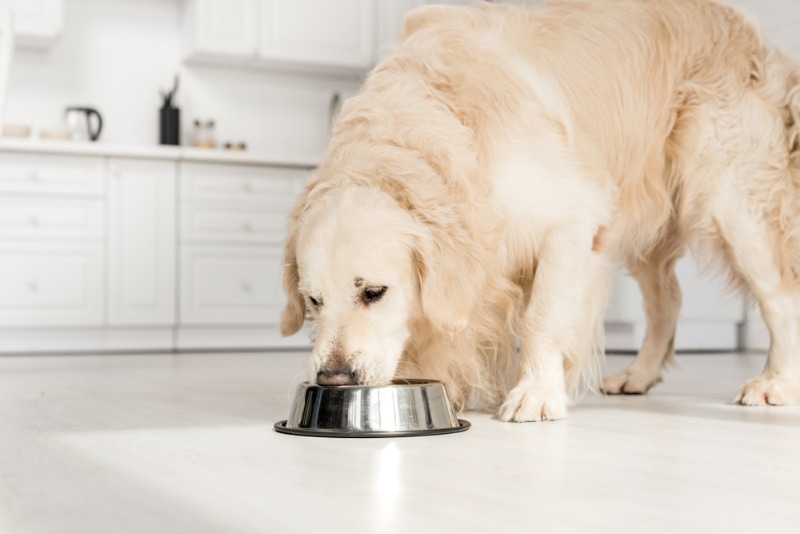
Can Dogs Eat “Human” Foods?
That depends on the type of food. Some human foods are safe for dogs, whereas others are not. Any foods offered outside of your dog’s regular food formula, like ghee, should be considered occasional treats or supplements rather than staple foods. Only up to 10% of your dog’s daily calorie intake should be in the form of treats. Many sources provide some safe foods dogs can have as treats and in moderation.
Final Thoughts
Though ghee isn’t the kind of food you’ll want to feed your dog on a daily basis due to its high-fat content, you can still offer a little now and then if your dog likes it. Be careful not to let your dog eat excessive amounts of ghee or any other treats, as this can lead to serious problems. Everything in moderation is a good rule of thumb to go by.
If you have questions about feeding certain foods to your dog or the kind of diet that would be most suitable for your dog, please talk them through with a veterinarian.
Featured Image Credit: etorres, Shutterstock

